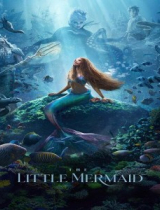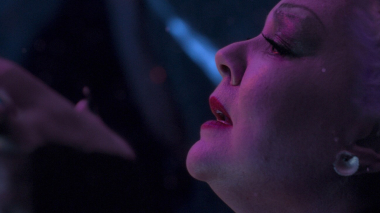Marking its entrance in the Disney live-action adaptations, "The Little Mermaid" brings a story steeped in nostalgia and charm. Replicating the original narrative inspired by Hans Christian Andersen and given a twist of Disney Princess Syndrome in 1989, this version comes with its share of highs and lows.
Unfolding a Solitary Dream: A Closer Look at the Narrative
In this live-action adaptation of "The Little Mermaid", the plot remains largely reminiscent of the original story by Hans Christian Andersen, as well as the 1989 Disney animated version. At the heart of the storyline is Ariel, a bold and beautiful mermaid, disillusioned by her maritime existence and yearning for a life of adventure and love on land.
Unlike her aquatic peers, Ariel dreams about stepping out of her father's underwater kingdom and venturing into the terrestrial world. She is drawn to the merchant prince she saves during a shipwreck, viewing him as her emancipation from the confines of her oceanic enclave. It's a delicate narrative of a mermaid wanting more than just to be part of the aquatic milieu, echoing the aspirations of many young hearts longing for liberation and exploration.
This narrative arc, however, is twisted further with the introduction of the deceitful sea-witch, Ursula. Upon learning about Ariel's desires, Ursula offers her a deceptively enticing bargain - Ariel can become human for three days, but if she fails to receive true love's kiss from the prince within this time frame, she will become Ursula's slave forever.
This conditional freedom given to Ariel turns the story into a ticking time bomb, bringing an intriguing element of risk and urgency into the otherwise romantic narrative, and opening up an unanticipated path to mirth, music and a dramatic journey of self-discovery.
However, the whimsicality and charm inherent in the original version seem to take a backseat in the remake. While the fundamental plot structure remains the same, the intricate webs of comic relief and musical intermissions are somehow not as well harmonized as they were in the animated version. The mirth seems comparatively muted, as if having been lost somewhere in the transition from animation to live-action. Although the narrative holds the foundational essence of the original story, it's evident that the live-action adaptation grapples to bring alive the vibrant amusement once delivered by its animated predecessor.
Graphics and Flickering Realism
As an unavoidable characteristic of the transition from animation to live-action, "The Little Mermaid" takes a dive into the realm of advanced computer-generated imagery (CGI). This shift in production technique can be a delicate balancing act - preserving the nostalgic charm of the original animation while enhancing the realism brought by live-action. In this version, the filmmakers have certainly achieved technical competence, utilizing soundstage sets and screensaver-like imagery to recreate the underwater world of Ariel and her friends.
Despite the technological advancements of modern cinema, the film seems to have lost a fundamental aspect of animation: its vibrancy and limitless creative freedom. In the 1989 version, the vast animated land- and seascapes encouraged viewers' imaginations to run wild. Every frame held an abundance of color, lively movements, and a touch of exaggeration that supported the film's whimsical, fairy-tale essence.
In this live-action retelling, however, the CGI landscapes look restrictive and lack a certain organic buoyancy. Although the creators maintained the structure and aesthetics from the original, the implementation of these elements in a hyper-realistic, three-dimensional platform feels somewhat inferior in its appeal. The well-intentioned desire to recreate these magical environments via CGI creates a visual paradox: the environments look impressively realistic, but paradoxically, they fall short of emulating the dynamic energy of the underwater world.
Furthermore, Ariel's emotional journey loses its visual spontaneity. Viewers are gently introduced to her various emotions in the original through exaggerated facial expressions, emphasized by her iconic scarlet mane that almost served as a character itself. Even without a dialogue, the animated Ariel was able to exhibit a range of facial expressions - curiosity, dismay, excitement, heartbreak, and much more.
In contrast, the live-action Ariel, represented by Halle Bailey, struggles to communicate the same degree of emotional evolution visually. While Bailey undoubtedly possesses her own natural charm, the CGI adaptation doesn’t seem to adequately compensate for the loss of facial expressiveness unique to animated characters. Consequently, the transition of Ariel from animation to live-action challenges the viewer's emotional connectivity to her character.
Conclusion
To sum it up, "The Little Mermaid" is a Disney live-action remake that while maintaining the essence of the original tale, attempts to make societal corrections. Despite its shortcomings, it's a noteworthy effort, fostering diversity, inclusion and modernity. However, going forward, a little creative risk would be crucial for more engaging storytelling.





